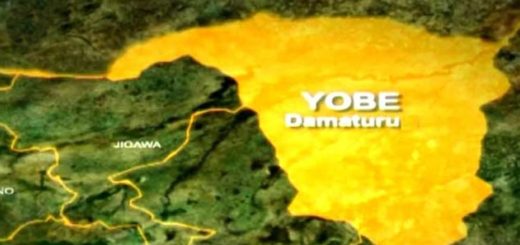New naira and bank workers’ acrobatic mentality (I)
New naira notes were introduced but most Nigerians could not access it to meet their basic daily needs. Frustrated, many express their displeasure in diverse ways. Some are shocking, others are near hilarious. But it’s a serious matter. Anyone may see as drama the manner our people express their frustration. I broadly see two things and both aren’t cheering news for the nation and people. One is what each new government policy, such as the introduction of new naira notes, consistently does to our people. The other is what each of us in turn does to our nation.
I don’t intend to justify what isn’t right as I glide through these two broad issues. But I think it’s important to point out that a nation needs to be careful to not turn its people into what it shouldn’t as a result of badly executed policies. The nation that does shall yet pay. Why is this worth pointing out? In the course of the issuance of new naira notes which stresses our people, many have thrown away their civility, behaviour sometimes becoming beastlike. This didn’t start now. It’s become a pattern. These days, with any measure the government implements, citizens are stressed such that some take the decision not to be caught unawares anymore. In the event Nigerians engage in legal and illegal acts, their trust in government and government officials eroding fast. This has implications.
Also, there’s the angle of how all of us contribute to ruining the system, then we turn around and point accusing fingers at others. No one is exempt from how this nation gets to where it is, but some single out ‘the other tribe’ for blame. I listen as they mix all manner of unrelated issues only to justify hatred for others. This is of serious concern to me because many Nigerians follow this erroneous interpretation of what the problem of the nation is. It can have serious consequences like we see in Rwanda. Let one tribe beat its chest that all its members are saints. Meanwhile, wherever we are we mostly circumvent the system. When the collective fallouts arrive we blame others. It’s a narrative I find baffling, making me wonder if our minds make the right connection between our individual actions and the collective consequences they must have on the nation.
It’s one reason I emphasise this point at every opportunity, but some who entertain themselves with false narratives that are cooked and served in their imagination call me names. Lament the state of the nation. But the moment you blame ‘the other tribe’ you’ve lost me. For you imply that your tribe is perfect, no member does anything illegal. But I state that there’s nothing perfect about any tribe, and illegality that harms Nigeria is committed by members of all the tribes as we read in the news. If for this you call me “crank” and “toxic,” it’s fine. It only shows the lack of depth in your reasoning, and there are some Nigerians these days whose reasoning makes me want to run for cover. But we can always debate any wrong-headed narrative as often as possible to make us see what we missed. No one would poison the minds of our people against one another and expect some of us to be quiet.
Still on what we do to our nation. The other day, an economist, Prof. Ken Ife, was on TV talking about the unintended effects of the scarcity of new naira notes. His submission informs this piece, even though the respected professor put into words some of the points that had been floating in my mind. Now, I don’t know economic matters but Ife is one expert I like to listen to when he talks about economics. I knew from his antecedent that he was one man who, as he spoke, wouldn’t come out hitting hard at bank officials regarding the well-known allegations that they gave new naira notes to their premium customers. Ife didn’t go in that direction for a long while in the course of the interview, generally sidestepping this mine wherever it was in sight.
But as I have come to realise, whatever is in a human mind is like smoke. Cover it, it’ll still escape. In response to a question, Ife has no way of escaping placing the blame where even the governor of the Central Bank of Nigeria has said it should be. Ife said we have some in the banking sector who have “acrobatic mentality and this comes to the fore from time to time.” I find this comparison striking, catching pictorially the impression I have of some who work in banks but whose character isn’t worth commenting on. Ife didn’t say more on that aspect than he did. He tactfully avoids an all-out assault on a segment of the nation that we know play a significant role in whatever mess is found in the financial sector; this includes selling even in normal times the smaller naira denominations to money sellers.
I’ve had an experience from one of such bank workers who was exercising his powers as though he were a god. When such a bank worker has control over millions of new naira notes, and he has the opportunity to take them to whoever would give him a percentage, I can imagine what he would do. Yet bank workers like him would come into the public space and blame the other tribe for Nigeria’s problems.
Even though Ife said so little on the culpability of bank officials in this matter, to me he said everything I wanted to hear. Each of us will always find in anything the illustrations we need to back the arguments we make in the public space. I’ve found one. It’s to the effect that some of us don’t always turn to ‘others,’ including governments, to place the blame as many do. Rather we sometimes turn to ourselves and point out what we do in our small corners that is wrong. Ife’s words about the “acrobatic” mentality’’ of many bank officials provide me with a fact to back my view regarding the illegality many engage in, only to turn around and blame others. I shall return to this point.
It’s a subconscious thing, but I often get thoughtful when I watch on TV some of the things that happen among our people. I think more of the effects of these things than the occurrences themselves. This happened regarding what some of our people displayed over the scarcity of new naira notes. When I watch on TV what they do in banking halls or see the push and pull they engage in next to ATM machines as I travel past on the road, I’m concerned about how we get here and what the cumulative effects will be. I imagine the effects are both physical and psychological – turning normal humans into abnormal ones. Humans will sooner than later behave in accordance with what they’ve passed through. But I don’t think most of the officials who regularly take decisions that get citizens into dire situations in the name of executing policies think in that direction.
Our people got so frustrated that some removed their clothes in the banking hall and screamed at bank officials, saying their bank accounts should be closed and they weren’t interested in having any dealings with the bank anymore. Others remove clothes, jump onto the counter in the banking hall and refuse to be dislodged. As I watch these things on TV I don’t see only what is happening, I see the bigger effects of badly executed policies on our people; I see what our nation turns citizens into. I shake my head often, convinced it’s a tragedy of immense proportion.
Analysts are regularly brought on TV to explain issues surrounding the issuance of the new naira notes. For many Nigerians though, no one needed to explain to them what would happen in banks when a new money policy had gaps that could be exploited by bank workers. They already know bank workers will do some business, profiting their pockets. In our nation, every gap is ever exploited by everyone. Where there’s no gap, we are so negatively inclined that we brilliantly create one.













